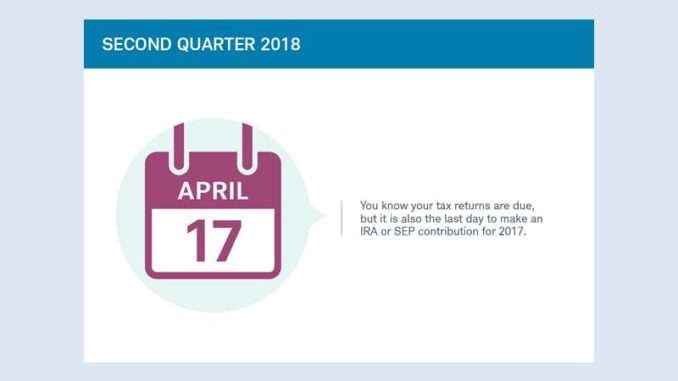
It may seem like common sense, but going back over the information you enter may be the most important part of your tax filing duties.
It’s tax time. And as you work with your advisor or tax preparer to maximize your refund, or at least minimize what you owe, keep in mind that one of the most important things taxpayers can do to limit errors is to double-check the information they input into software or a printed form.
It may seem like common sense, but going back over the information you enter may be the most important part of your tax filing duties. As you know, it’s very easy to put a figure on the wrong line – in fact, one of the most common errors is not putting in the right Social Security numbers for you, your spouse and your dependents. An error like that can cause a significant delay in the processing of your return or, even worse, could trigger an audit.
So do make an effort to recheck what you’ve entered before moving to the next line or screen. While you’re going back over your return for wrong entries and typos, take the time to look up numbers such as cost basis for investments sold and real estate tax paid, rather than estimating. And double-check your math, too, because simple miscalculations can commonly lead to errors as well.
Here are a few other tax filing tips:
- If you looked for a new job last year, add up the cost of creating resumes, employment agency fees and travel expenses for interviews for jobs in your current line of work. These expenses may be tax deductible if you itemize.
- Reduce your taxable income by making contributions (right up until the April filing deadline) to tax-advantaged accounts like a health savings account, traditional IRA or SEP IRA if you have self-employment income.
- While you’re at it, review the income limitations for breaks such as deductible IRA contributions, which rise annually. Depending on how your tax situation has changed, you might be eligible now even if you weren’t before.
- If you work out of your home, rather than laboriously itemizing for your home office deduction, use the simplified option of calculating $5 for every square foot of your home you use as your office, up to 300 square feet for a maximum deduction of $1,500.
- File your taxes electronically. It’s the safest, easiest and fastest way to file your taxes, and you will get your refund quicker if you request direct deposit.
Be aware that the IRS never contacts taxpayers by email. If you receive an email appearing to come from the IRS about your returns, beware. It is likely a phishing attempt to get you to share sensitive information about yourself. If you receive an email like this, forward it to phishing@irs.gov.
It’s always best to seek the help of a professional. If you don’t already have a tax advisor, consider working with one this year to see if together you can uncover new ways to turn your tax return in your favor.
If you have any questions regarding your financial situation, please give Garry Kachkovsky a call at 858-450-9711 or email him at garry@kachkovskyandfisher.com.
Kachkovsky & Fisher is a Registered Investment Advisory Firm. This information is general in nature, is not a complete statement of all information necessary for making an investment decision, and is not a recommendation or a solicitation to buy or sell any security. Investments and strategies mentioned may not be suitable for all investors. Past performance may not be indicative of future results. Investors should consider the investment objectives, risks, charges and expenses associated with savings plans before investing.
Editor’s note: This is sponsored content, purchased by the author, and reflects the author’s views. It may not reflect the views of UCCA or University City News. Sponsored content must conform to UCCA’s Bylaws. Publication does not constitute an endorsement. For more information about sponsored content, contact us at https://www.universitycitynews.org/contact-us-or-volunteer-in-uc/
For related posts
, visit https://www.universitycitynews.org/category/sponsored-content/


